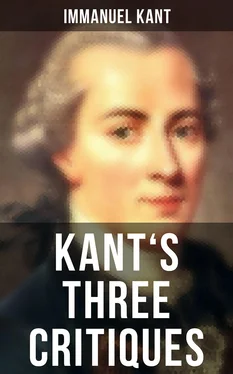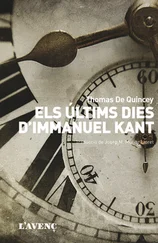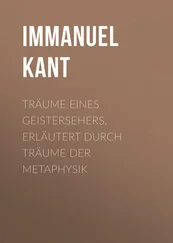Introduction.
I. Of the difference between Pure and Empirical Knowledge
Table of Contents
That all our knowledge begins with experience there can be no doubt. For how is it possible that the faculty of cognition should be awakened into exercise otherwise than by means of objects which affect our senses, and partly of themselves produce representations, partly rouse our powers of understanding into activity, to compare, to connect, or to separate these, and so to convert the raw material of our sensuous impressions into a knowledge of objects, which is called experience? In respect of time, therefore, no knowledge of ours is antecedent to experience, but begins with it.
But, though all our knowledge begins with experience, it by no means follows that all arises out of experience. For, on the contrary, it is quite possible that our empirical knowledge is a compound of that which we receive through impressions, and that which the faculty of cognition supplies from itself (sensuous impressions giving merely the occasion), an addition which we cannot distinguish from the original element given by sense, till long practice has made us attentive to, and skilful in separating it. It is, therefore, a question which requires close investigation, and not to be answered at first sight, whether there exists a knowledge altogether independent of experience, and even of all sensuous impressions. Knowledge of this kind is called a priori , in contradistinction to empirical knowledge, which has its sources a posteriori , that is, in experience.
But the expression, “ a priori ,” is not as yet definite enough adequately to indicate the whole meaning of the question above stated. For, in speaking of knowledge which has its sources in experience, we are wont to say, that this or that may be known a priori , because we do not derive this knowledge immediately from experience, but from a general rule, which, however, we have itself borrowed from experience. Thus, if a man undermined his house, we say, “he might know a priori that it would have fallen;” that is, he needed not to have waited for the experience that it did actually fall. But still, a priori , he could not know even this much. For, that bodies are heavy, and, consequently, that they fall when their supports are taken away, must have been known to him previously, by means of experience.
By the term “knowledge a priori ,” therefore, we shall in the sequel understand, not such as is independent of this or that kind of experience, but such as is absolutely so of all experience. Opposed to this is empirical knowledge, or that which is possible only a posteriori , that is, through experience. Knowledge a priori is either pure or impure. Pure knowledge a priori is that with which no empirical element is mixed up. For example, the proposition, “Every change has a cause,” is a proposition a priori , but impure, because change is a conception which can only be derived from experience.
II. The Human Intellect, even in an Unphilosophical State, is in Possession of Certain Cognitions “ a priori ”.
Table of Contents
The question now is as to a criterion, by which we may securely distinguish a pure from an empirical cognition. Experience no doubt teaches us that this or that object is constituted in such and such a manner, but not that it could not possibly exist otherwise. Now, in the first place, if we have a proposition which contains the idea of necessity in its very conception, if, moreover, it is not derived from any other proposition, unless from one equally involving the idea of necessity, it is absolutely priori. Secondly, an empirical judgement never exhibits strict and absolute, but only assumed and comparative universality (by induction); therefore, the most we can say is — so far as we have hitherto observed, there is no exception to this or that rule. If, on the other hand, a judgement carries with it strict and absolute universality, that is, admits of no possible exception, it is not derived from experience, but is valid absolutely a priori .
Empirical universality is, therefore, only an arbitrary extension of validity, from that which may be predicated of a proposition valid in most cases, to that which is asserted of a proposition which holds good in all; as, for example, in the affirmation, “All bodies are heavy.” When, on the contrary, strict universality characterizes a judgement, it necessarily indicates another peculiar source of knowledge, namely, a faculty of cognition a priori . Necessity and strict universality, therefore, are infallible tests for distinguishing pure from empirical knowledge, and are inseparably connected with each other. But as in the use of these criteria the empirical limitation is sometimes more easily detected than the contingency of the judgement, or the unlimited universality which we attach to a judgement is often a more convincing proof than its necessity, it may be advisable to use the criteria separately, each being by itself infallible.
Now, that in the sphere of human cognition we have judgements which are necessary, and in the strictest sense universal, consequently pure a priori , it will be an easy matter to show. If we desire an example from the sciences, we need only take any proposition in mathematics. If we cast our eyes upon the commonest operations of the understanding, the proposition, “Every change must have a cause,” will amply serve our purpose. In the latter case, indeed, the conception of a cause so plainly involves the conception of a necessity of connection with an effect, and of a strict universality of the law, that the very notion of a cause would entirely disappear, were we to derive it, like Hume, from a frequent association of what happens with that which precedes; and the habit thence originating of connecting representations — the necessity inherent in the judgement being therefore merely subjective. Besides, without seeking for such examples of principles existing a priori in cognition, we might easily show that such principles are the indispensable basis of the possibility of experience itself, and consequently prove their existence a priori . For whence could our experience itself acquire certainty, if all the rules on which it depends were themselves empirical, and consequently fortuitous? No one, therefore, can admit the validity of the use of such rules as first principles. But, for the present, we may content ourselves with having established the fact, that we do possess and exercise a faculty of pure a priori cognition; and, secondly, with having pointed out the proper tests of such cognition, namely, universality and necessity.
Not only in judgements, however, but even in conceptions, is an a priori origin manifest. For example, if we take away by degrees from our conceptions of a body all that can be referred to mere sensuous experience — colour, hardness or softness, weight, even impenetrability — the body will then vanish; but the space which it occupied still remains, and this it is utterly impossible to annihilate in thought. Again, if we take away, in like manner, from our empirical conception of any object, corporeal or incorporeal, all properties which mere experience has taught us to connect with it, still we cannot think away those through which we cogitate it as substance, or adhering to substance, although our conception of substance is more determined than that of an object. Compelled, therefore, by that necessity with which the conception of substance forces itself upon us, we must confess that it has its seat in our faculty of cognition a priori .
III. Philosophy stands in need of a Science which shall Determine the Possibility, Principles, and Extent of Human Knowledge “ a priori ”
Читать дальше












